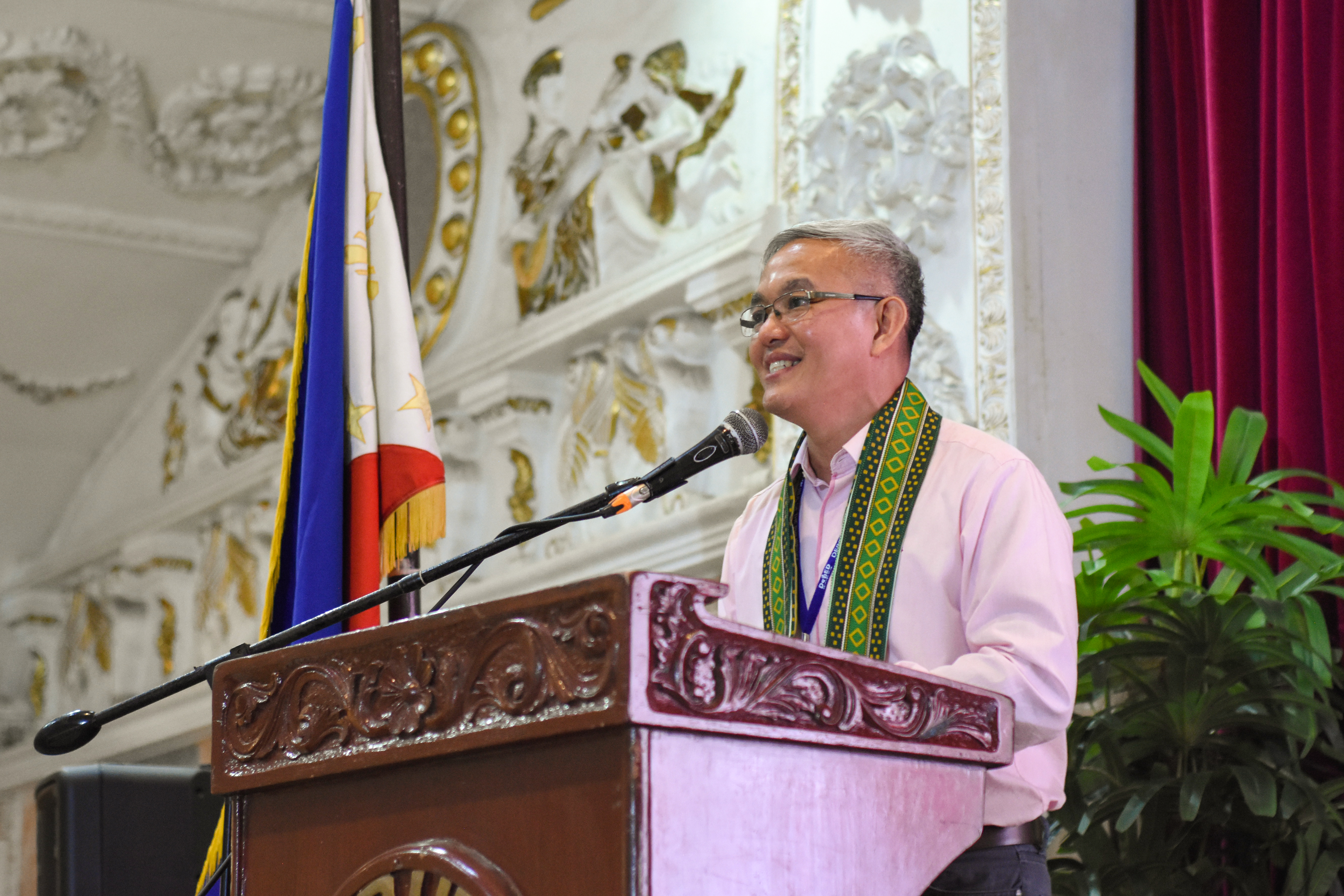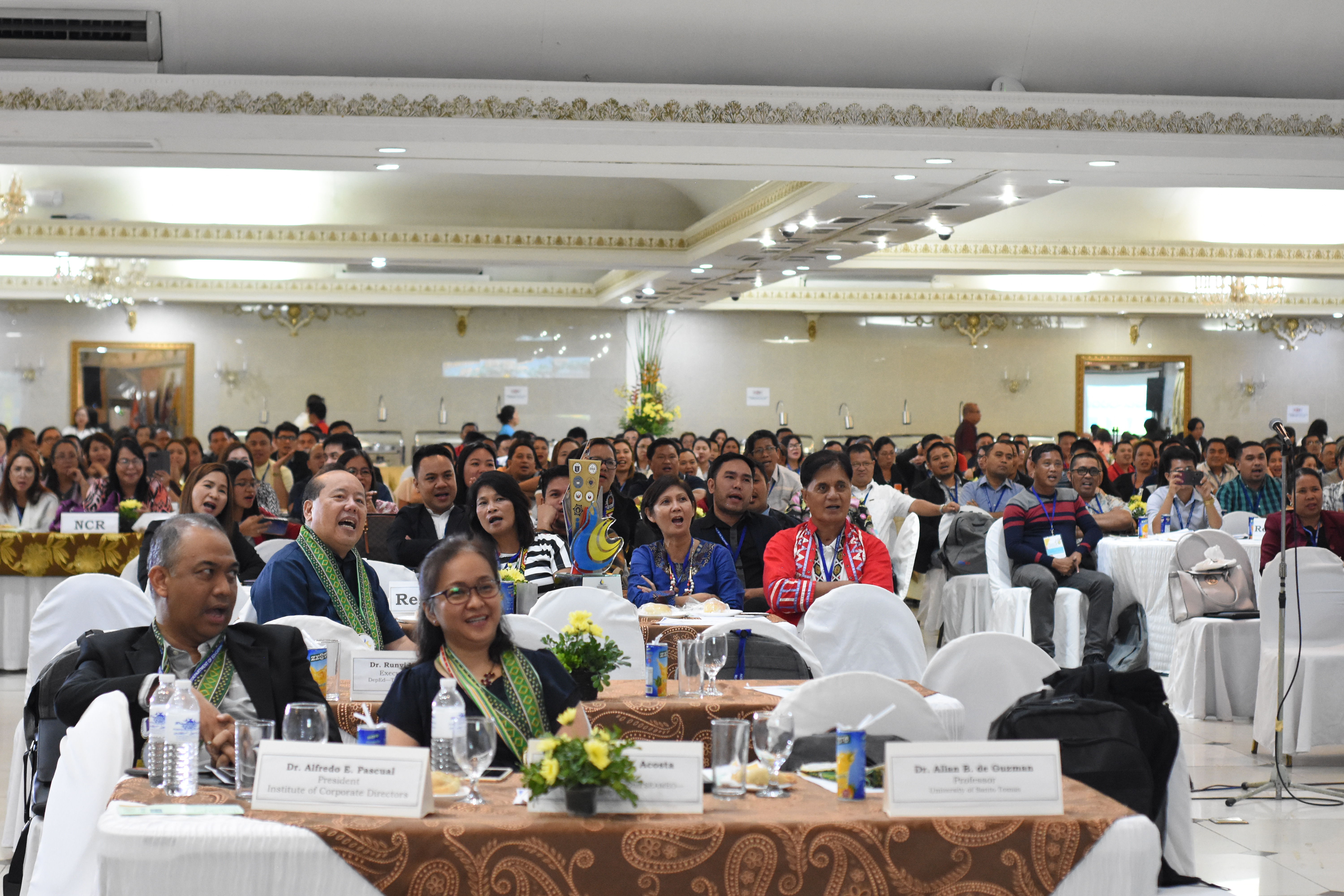ILOILO CITY, October 15, 2019 — With the aim to align the 21st Century Literacies with the fast-growing demands of Industry 4.0, the Department of Education (DepEd) conducted the 2019 National Literacy Conference (NLC) from October 8 to 10 in Iloilo City.
Spearheaded by the DepEd Literacy Coordinating Council (LCC), the conference served as an avenue for literacy promulgators to address concerns and provide consolidated solutions that can aid in promoting [a] new program of service that will improve the present condition of literacy in the country.
“The challenge as suggested by our team is to go beyond the traditional notion of how or what a literate person is. Traditionally, we just would be happy to say that we know how to read and write but in this 21st century, in the so-called Industry 4.0, we have to go beyond the traditional notion of basic literacy,” DepEd Undersecretary for Curriculum and Instruction Diosdado San Antonio said during his keynote address.
San Antonio added that the people and the organizations who want to excel will never rest on their laurels and they will ensure previous performances are surpassed through continuous improvement.
Anchored on the theme: “Aligning 21st Century Literacies to Industry 4.0 through Research,” this year’s event aims to enhance education leaders and workers’ knowledge on the 21st Century Literacies, Industry 4.0 and research on literacy, present research studies on the 21st Century Literacies, appreciate stakeholders’ participation in literacy governance, gather policy recommendations relevant to the literacy research agenda, and provide a platform for the exchange of experiences and good practices on literacy implementation.
The three-day event concluded with the awarding ceremony for the winners of the LCC Call for Papers in Poster and Oral presentation conducted by the LCC Members led by DILG Undersecretary Marivel Sacendocillo and Cebuana Lhuiller Foundation Inc.
The winners of the National Literacy Awards (NLA) 2019 in oral presentation were the following: Dr. Carnila Simacon (Region X); Dr. Michael Ecoben (Region X); Jane Charity Estrada- Madronero (Region X); Florena Deuna (Region V); Dr. Annalyn Jawili- Decena (NCR); William dela Cruz (CARAGA); Dr. Maria Azeka Lopez-Tamayo (NCR); Hasima Salic (Region X); and Jerick Ferrer (NCR).
The winners in the poster presentation category were the following: Grace Cueva (Region X); Rubie Salva (Region X); Mary Jean Sungahid (Region X); Mary Joan Cajella (Region X); Margarita Enerio (Region X); William Agomana (Region X); Leah Lyn Lingatong (Region X); Maurita Donasco (Region X); Dinah Zoriada Zamora (Region X); Darel Caubang (Region V); Alexander Simagala (Region IV-A); Niña Dumanon Leyson, PhD (Region X); Genevieva Fuentes (Region X); Simonette Caylo (Region X); Nympha Rodriguez (Region X); Jay Boy Evano (NCR); and Noli Abrigo Jr., PhD (Region II).
The LCC also presented the Hall of Fame Award to the Socioeconomic Uplift Literacy Anthropological and Development Services, (SULADS) Inc. from Valencia, Bukidnon for its Outstanding Literacy Programs. SULADS, a three-time first place winner in the LCC’s National Literacy Awards, received a cash prize of P100,000,and a Hall of Fame trophy.
As the 2019 NLC concluded, Department of the Interior and Local Government Assistant Regional Director Maria Calpiza Sardua challenged everyone to take responsibility in molding a literate community.
“It is our mission to ensure that the average Filipino becomes and stays literate. But the buck doesn’t stop at LCC. As the saying goes, it takes a village to raise a child. If we apply it in our reality, the state of education and literacy in the country, it is not simply the teachers alone who must nurture the minds of our learners, it takes all of us,” Sardua underscored during her closing remarks.
“The challenge to everyone is to ensure that the learners– the children will be equipped and well-educated to face their own challenges in life,” Sardua added.
Among the more than 500 participants present in the NLC were DepEd regional directors, assistant regional directors, regional NLA coordinators, regional Alternative Learning System (ALS) focal persons, schools division superintendents, assistant schools division superintendents, division supervisors of ALS and formal education, district supervisors, elementary and secondary school principals, education program specialist for ALS, full-time district ALS coordinators, ALS mobile teachers, local government units, officials implementing literacy programs, barangay chairpersons actively involved in the universalization of literacy, heads and members of non-government and civil society organizations involved in literacy implementation, and heads and members of partner academic institutions.
END





